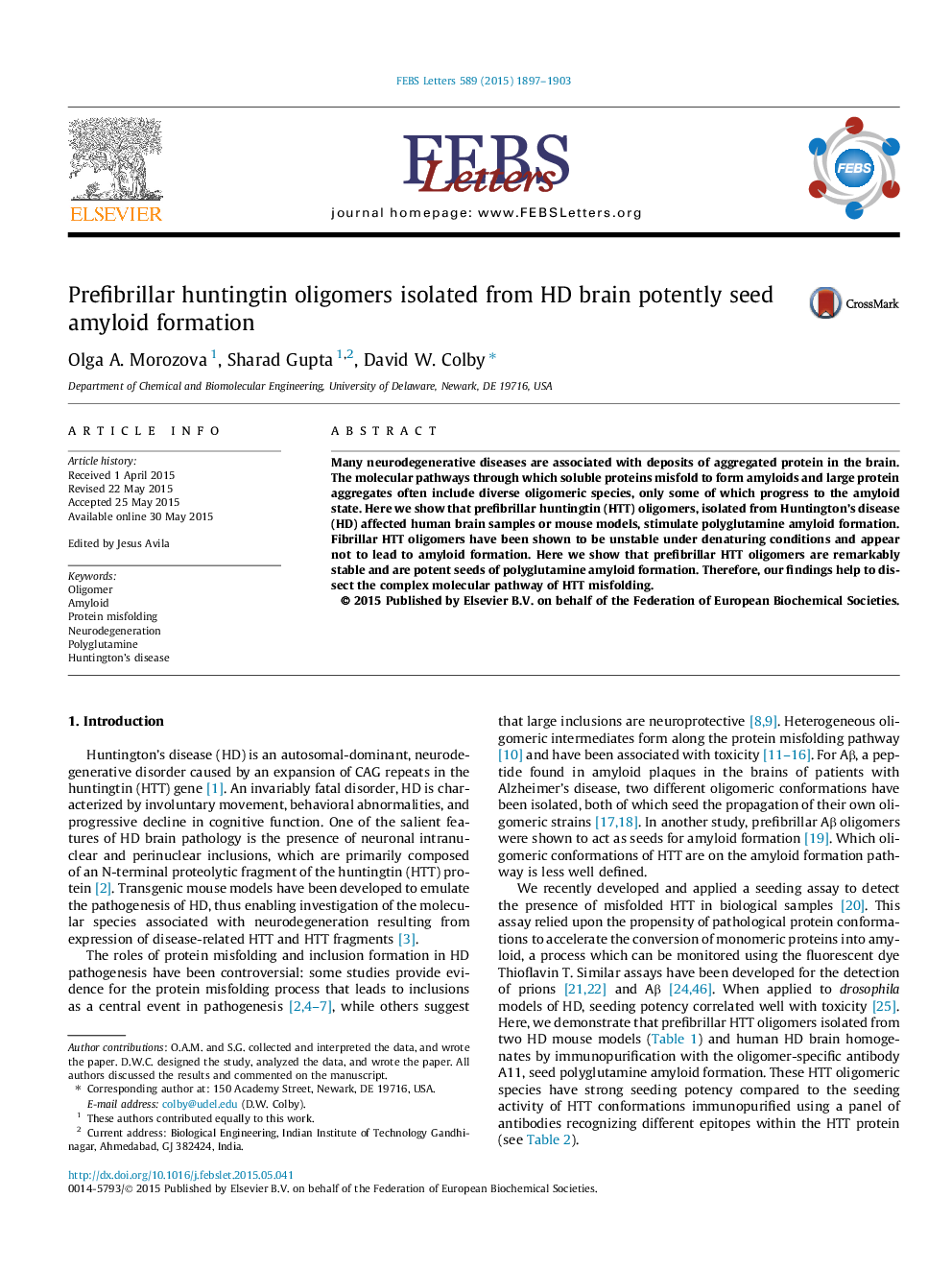| Article ID | Journal | Published Year | Pages | File Type |
|---|---|---|---|---|
| 10870082 | FEBS Letters | 2015 | 7 Pages |
Abstract
Many neurodegenerative diseases are associated with deposits of aggregated protein in the brain. The molecular pathways through which soluble proteins misfold to form amyloids and large protein aggregates often include diverse oligomeric species, only some of which progress to the amyloid state. Here we show that prefibrillar huntingtin (HTT) oligomers, isolated from Huntington's disease (HD) affected human brain samples or mouse models, stimulate polyglutamine amyloid formation. Fibrillar HTT oligomers have been shown to be unstable under denaturing conditions and appear not to lead to amyloid formation. Here we show that prefibrillar HTT oligomers are remarkably stable and are potent seeds of polyglutamine amyloid formation. Therefore, our findings help to dissect the complex molecular pathway of HTT misfolding.
Related Topics
Life Sciences
Agricultural and Biological Sciences
Plant Science
Authors
Olga A. Morozova, Sharad Gupta, David W. Colby,
